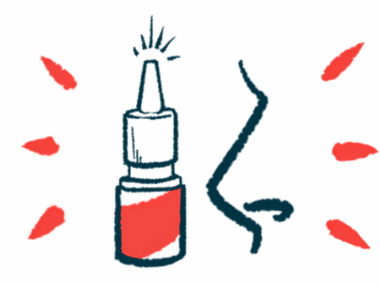Apomorphine Infusion Device Again Before FDA for Approval
Written by |

Supernus Pharmaceuticals has again applied to the U.S. Food and Drug Administration (FDA) requesting that its apomorphine infusion device (SPN-830), allowing continuous treatment of Parkinson’s disease motor symptoms, be approved.
“SPN-830 is an important product candidate which, if approved by the FDA, represents a novel approach for PD [Parkinson’s disease] patients,” Jack Khattar, president and CEO of Supernus, said in a press release.
Parkinson’s is characterized by the loss of the nerve cells that produce dopamine — a potent cell messenger within the brain — and motor symptoms such as tremors, abnormally slow movements, and muscle rigidity.
Supernus’ apomorphine infusion device is intended to treat Parkinson’s patients with fluctuations in these symptoms while taking levodopa (a common dopamine-replacing medication) or similar treatments. These periods when the therapy is not working or its effects wear off, causing or worsening Parkinson’s symptoms, are called “off” episodes.
The therapy utilizes an infusion device to continuously provide apomorphine (sold under the brand name Apokyn, among others), a treatment for off episodes that works by mimicking how dopamine works in the brain, thereby minimizing the motor symptoms associated with off episodes.
Apomorphine is currently used as a subcutaneous (under-the-skin) injection. According to Supernus, using a pump will enable patients to administer the medication in a way that is less invasive (fewer injection sites) and more convenient.
Supernus initially requested SPN-830’s approval — submitted as a new drug application (NDA) — to the FDA in September 2020. However, the agency found it lacked sufficient information to allow a proper review and requested more supporting data.
“We remain confident in the data package for SPN-830 and its promise as an important treatment option for PD patients who experience motor fluctuations associated with on-off episodes. We are fully committed to working with the FDA to address its letter and successfully refile our SPN-830 NDA,” Khatter said in a press release at the time the company received the FDA’s refusal to file letter.
The company met with the FDA in March for clarification on the requirements for resubmission, leading to it applying again.
“We believe the continuous subcutaneous infusion of apomorphine for the treatment of motor fluctuations (OFF episodes) can be an attractive alternative for patients who are seeking less invasive options,” Khattar said.
Supernus acquired rights to Apokyn, as well as the SPN-830 pump, from US WorldMeds in 2020.






